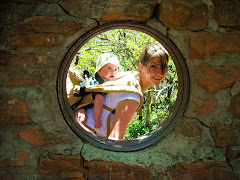This week's news regarding the lady (Suleman) with octuplets has started a lot of discussion, unfortunately I think it together with the economic stresses has stirred up a hornet's nest of prejudice passion. Suleman gave birth to octuplets after "successful" IVF treatment. She is a single mother with 6 other children, also conceived through IVF. Three of her older children (ages 2-7) have disabilities. It seems that the octuplets were conceived via frozen embryos from a previous IVF cycle. (Probably the ones where she had her first 6 children.)
First, at issue is not how many children a single mother should have. For some, one is too many; while others would like 10 or 12. There are two big issues here (but I will not discuss the second issue which is how much will all of this cost the public who will be paying for most of this and the associated problems?):
How could a physician who takes the Hippocratic Oath ("I will prescribe regimens for the good of my patients according to my ability and my judgment and never do harm to anyone.") risk the mother's life and the potential children's lives and well-being by transfering 6 embryos into a woman that previously had little problem getting pregnant via IVF??
Steven Orry, president of the American Society for Reproductive Medicine has said, "Infants born as multiples are almost always premature and have higher rates of low birth weight, cerebral palsy, developmental delays, birth defects and death. Even twins, who usually survive, are hospitalized twice as long as singletons and have much higher medical costs over the first five years. Cost of multiple births can easily top $100,000."
Complications
The most important complications to the mother are pre-eclampsia, preterm labor
and delivery, and gestational diabetes. As the number of fetuses go up, thes risks of these complications soars. Other complications include cholestasis, dermatoses, excess weight gain,
anemia, hyperemesis gravidarum, exacerbation of pregnancy-associated gastrointestinal symptoms including reflux and constipation, chronic back pain, intermittent dyspnea, postpartum laxity of the abdominal wall, and umbilical hernias. (Source: ASRM Practice Committee Guidelines on Multiple Pregnancies).
Complications for the babies (according to the ASRM Practice Committee) include complications from pre-mature birth: "cerebral palsy, retinopathy of prematurity, and bronchopulmonary dysplasia as well as those of fetal growth restriction (polycythemia, hypoglycemia, necrotizing enterocolitis). It is unclear to what extent multiple gestations themselves affect neuro-behavioral development in the absence of these complications. Rearing of twins and high-order multiples may generate physical, emotional, and financial stresses, and the incidence of maternal depression and anxiety is increased in women raising multiples. At mid-childhood, prematurely born offspring from multiple gestations have lower IQ scores, and multiple birth children have an increase in behavioral problems compared with singletons."
Alternatives?
The potential outcome (a healthy child) was not worth the risks (including death of the mother and the babies). Was there an alternative? Sure! Thaw fewer embryos and transfer only 2 and then if the woman did not get pregnant, thaw another 2 and transfer.
The physician is lucky Suleman survived her pregnancy. Now she must wait to see what this will cost her children. How many will survive? How many will have life-altering consequences for the rest of their lives?
Friday, February 13, 2009
Subscribe to:
Posts (Atom)





















